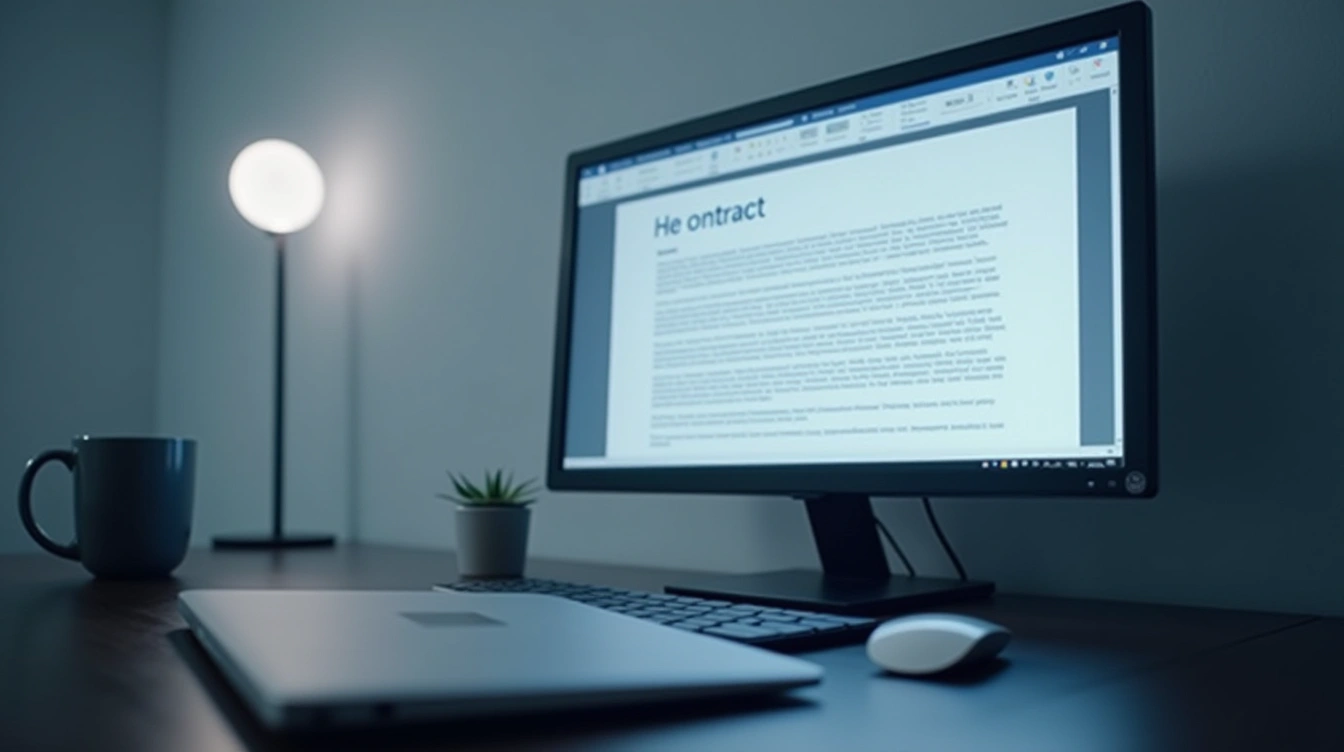AI paralegals transform contract review by automating repetitive tasks like drafting and summarizing, freeing legal professionals to focus on strategic analysis. These tools increase speed and accuracy while maintaining necessary human oversight. Understanding how AI integrates with traditional workflows reveals its true potential to enhance—not replace—paralegal roles, boosting productivity and elevating legal service quality.
Understanding the Role of AI Paralegals in Legal Services
<<https://www.marblism.com/ai-employees/linda>> functions as an AI assistant that streamlines contract review by clarifying legal jargon and highlighting key clauses. This tool helps users comprehend complex documents efficiently, reducing the typical hours spent on legal analysis. It operates quietly in the background, consulting only when necessary, thus saving time and minimizing stress.
Also to discover : How Will High-Tech Developments in the UK Impact the Future of Computing?
AI’s core function involves automating routine tasks such as document review, data extraction, and legal research, allowing paralegals to focus on higher-level responsibilities. While AI can handle high volumes of document analysis quickly, human oversight remains vital for nuanced judgment and client communication. Experts predict AI will augment the role of paralegals rather than replace them entirely.
This shift encourages upskilling in data analysis, legal technology, and workflow management. The integration of AI technology, demonstrated by platforms like Clio, emphasizes ethical considerations like data privacy and confidentiality. Paralegals benefit from AI as a productivity enhancer, reinforcing their indispensable role in legal teams. For more details, visit the page: https://www.marblism.com/ai-employees/linda.
Also read : How Will High-Tech Developments in the UK Impact the Future of Computing?
Capabilities and Practical Applications of AI Paralegals
Contract and Document Automation
AI paralegal technology streamlines AI contract analysis and AI document review by rapidly extracting, classifying, and tagging key contractual terms. These automation advances enable law firms and legal departments to handle volume and complexity without sacrificing accuracy. AI contract lifecycle management tracks renewal dates, obligations, and amendments, ensuring deadlines are never missed and compliance remains seamless. Automation in legal work reduces time spent on repetitive drafting tasks, letting human professionals prioritize higher-value activities. AI contract extraction pinpoints critical clauses—whether for standardization, negotiation, or risk assessment—while legal AI tools enable reliable document classification and collaboration, supporting robust legal workflow automation.
Legal Research and Due Diligence Support
AI for legal research increases speed and depth when searching for precedent or reviewing statutes using natural language processing legal tools. These systems summarize complex opinions and regulations with high precision, delivering actionable AI-driven legal insights. Automated AI document review helps in regulatory compliance by highlighting amendments and surfacing potential risks. The future of legal AI supports rapid, diligent due diligence, slashing research time without compromising thoroughness. AI legal data analysis and AI risk assessment legal solutions present synthesized findings in plain language, aiding lawyers and paralegals in critical decisions.
Litigation Support and Compliance Monitoring
AI-powered eDiscovery identifies relevant documents and communications in litigation at unprecedented speed, drastically reducing manual review effort. Ongoing compliance can be monitored through AI for compliance monitoring, which flags policy breaches and automates notifications. For litigation case analysis, AI predictive analytics legal platforms assess outcomes and risks based on existing case data, giving teams strategic advantage. These AI paralegal use cases underscore how AI handles legal routine tasks, improves contract accuracy, and supports firms in adapting to shifting legal AI market trends.
Benefits and Limitations of AI in Paralegal Work
AI paralegal technology significantly speeds up legal document review by handling repetitive tasks such as summarizing, tagging, and extracting key contract clauses. By automating routine duties, legal AI tools allow law professionals to dedicate more time to complex legal analysis and direct client work. The adoption of AI in legal services leads to tangible cost savings with AI in law, lowering overhead expenses for client matters.
Despite these advances, AI paralegal accuracy remains imperfect. Errors in AI legal document automation occur, particularly when dealing with ambiguous or nuanced legal issues. AI contract analysis can sometimes misinterpret subtle language, reinforcing the need for experienced human oversight. Overreliance on automation in legal work increases the risk of missing unique contractual obligations.
Ethical considerations remain a top priority for AI in legal services. Data privacy and client confidentiality present ongoing challenges. Strict adherence to legal compliance and proper protocols is necessary to safeguard sensitive information processed by AI paralegal technology.
As AI legal workflow automation becomes standard, paralegals must enhance their expertise with AI paralegal training and adapt to evolving AI paralegal job impact. Ultimately, legal AI tools serve best as powerful assistants—freeing up human talent for high-value legal tasks and ensuring that law firms deliver more precise, streamlined outcomes.
Impact of AI on Paralegal Profession and Law Firm Operations
Job Displacement Versus Role Enhancement
AI paralegal technology is transforming law firm operations by significantly automating routine legal work. While AI in legal services can perform up to 69% of billable paralegal tasks—such as AI document review and AI contract analysis—it’s not replacing human roles entirely. Instead, legal AI tools provide automation in legal work, allowing paralegals to redirect energy toward complex responsibilities like client engagement and strategic decision-making. Human skills—empathy, communication, judgment—remain core, ensuring that paralegal expertise is irreplaceable.
Adoption Challenges and Training Needs
Integrating AI paralegal technology into daily workflow poses challenges. AI legal workflow automation and AI paralegal job impact require new technical expertise. Upskilling in natural language processing legal applications and AI legal data analysis is necessary. Training resources—webinars, certifications, and ongoing courses—help bridge competence gaps, preparing staff for evolving AI for legal research demands.
Cost Implications and Software Solutions
By leveraging cloud-based AI paralegal software, firms experience notable cost savings with AI in law. AI contract extraction, AI contract lifecycle management, and case handling automation reduce overhead and improve profitability. Solutions such as AI Lawyer and Linda allow efficient AI for contract management, boosting law firm productivity and client satisfaction through seamless, secure access and improved AI legal document automation.
How AI Paralegal Technology Is Transforming Legal Services
AI paralegal technology automates a broad spectrum of tasks—such as contract review, legal research, and document analysis—radically accelerating legal workflows. According to the Stanford Question Answering Dataset (SQuAD) approach, the most relevant answers focus first on productivity: up to 69% of paralegal billable work can be streamlined with legal AI tools. This includes AI document review, AI contract analysis, and AI-powered eDiscovery, allowing instant extraction of key clauses and identification of legal issues.
AI in legal services is not designed to replace paralegals but to augment their capabilities. Complex judgment, strategic planning, and nuanced client interactions still require human expertise. As a result, law firms benefit from automation in legal work, while paralegals move toward higher-level activities.
Natural language processing legal solutions and AI legal document automation help clarify jargon and enable contract lifecycle management. By leveraging AI contract extraction and highlighting key clauses, teams enhance both accuracy and compliance monitoring.
Training in AI paralegal software and adaptation to AI legal workflow automation have emerged as new expectations for career advancement. Paralegals now routinely embrace legal process automation tools, boosting AI paralegal accuracy, reducing repetitive work, and reinforcing the indispensable role of the human legal assistant.










